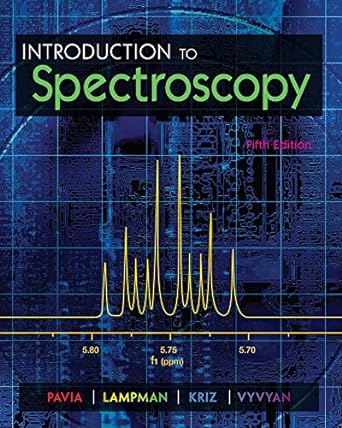This course examines ways to preserve bat populations and habitats in suburban areas
West Virginia State University Online
-


Welcome!
If you are new to Moodle, take a look at our training course, Online Student Orientation, located in the navigation bar at the top of this screen. If you have questions about how to use Moodle, please stop by Wallace 222, send us an email at col@wvstateu.edu, or call us at 304-766-3300.
Open LMS Mobile is now available!
Open LMS Mobile DetailsNeed Help Registering for an Upcoming Semester? No Problem!!Contact the Academic Advising Center Today!
Notice about Financial Aid
As a student, you should check your Financial Aid Requirements, at least once a week, throughout each semester. As most of you know, there are attendance requirements involved in your financial aid eligibility, as well as academic, that may need verified. The Office of Financial Aid and Scholarships utilizes your MyState account and your campus email as their primary sources of communication.
Notice about Online Tutoring
WVSU now offers online tutoring for fully online students. To schedule a session with an online tutor, visit the online Learning Enrichment Center.
About WVSU
Founded in 1891, West Virginia State University is a public, land-grant, historically black university, which has evolved into a fully accessible, racially integrated, and multi-generational institution.
The University, “a living laboratory of human relations,” is a community of students, staff, and faculty committed to academic growth, service, and preservation of the racial and cultural diversity of the institution.
With the goal of improving the quality of our students’ lives, as well as the quality of life for West Virginia’s citizens, the University forges mutually beneficial relationships with other educational institutions, businesses, cultural organizations, governmental agencies, and agricultural and extension partners.Notice about GraduationAll students must apply for graduation one semester prior to completing graduation requirements.Visit the Graduation & Commencement page for additional information, including the application.
Available courses
- Instructor: CLINTON ARNOLD
- Instructor: Tina Sanchez
- Instructor: TINA SANCHEZ
- Instructor: Tina Sanchez
- Instructor: TINA SANCHEZ
- Instructor: STEPHANIE BURDETTE
- Instructor: Dr. Emily Waugh
- Instructor: Katherine Bryant
- Instructor: KATHERINE BRYANT
- Instructor: Katherine Bryant
- Instructor: KATHERINE BRYANT
- Instructor: Kemberly Pasley
- Instructor: KEMBERLY PASLEY
- Instructor: ANNE MCCONNELL
- Facilitator : BARBARA (she, etc.) LADNER
- Instructor: STEPHANIE BURDETTE
- Instructor: Dr. Emily Waugh
- Instructor: Thomas Kiddie
- Instructor: STEPHANIE BURDETTE
- Instructor: Dr. Emily Waugh
This course prepares prospective educational leaders to administer various school programs for diverse student populations. Emphasis will be given to basic concepts, issues, regulations, problems and procedures in the management of special and compensatory education. Also included will be state and federal legislation and court decisions pertaining to diverse pupil populations.
- Facilitator : KELLI EPLING
(3 Credit Hours) An introductory study of the discipline of health sciences, sports studies, health and physical education and the many factors that influence our health such as heredity, environment, health care services, and our own behavior. Emphasis will be placed on the relationship of health education and health promotion to other disciplines, concepts of learning and behavior change, comprehensive school health programs, models and theories of human development and behavior with application to health education, competencies and skills of health educators, ethics, and current and future issues in health education. Students will also use the Internet to explore the various resources available to
- Instructor: DEBRA ANDERSON-CONLIFFE
3 Credit Hour Course – This course examines social issues and challenges in rural health with emphasis on morbidity and mortality status among rural populations, health disparities, health hazards, health care, environmental health and food insecurity. Prerequisite
- Instructor: LINDSEY GOOD
(3 Credit Hours) This course addresses the full scope of leadership and its challenges with special emphasis on leading within the healthcare environment. Prerequisite(s): HHP 454.
- Instructor: LINDSEY GOOD
- Instructor: CINDI SETTLE
- Instructor: LINDSEY GOOD
This course is a study of the practical methods and strategies used when implementing health education and health promotion programs.
- Instructor: LINDSEY GOOD
- Instructor: LINDSEY GOOD
- Instructor: Azam Bejou
- Instructor: Amanda Myers
(3 Credit Hours) The purpose of this course is to explore the many dimensions of new venture creation and growth and to foster innovation and new business formations in independent and corporate settings. We will be concerned with content and process questions as well as with formulation and implementation issues that relate to conceptualizing, developing and managing successful new ventures.
Prerequisite(s): BA 301.
- Instructor: Azam Bejou
(3 Credit Hours) This course will examine the multifaceted problem of crime victimization. It focuses on the incidence of criminal victimization, social characteristics of crime victims, and the treatment of the victim by the Criminal Justice System. It also examines the efforts designed to alleviate the consequences of criminal victimization and provide support for the victim. This course is 100% online using the learning management system (LMS) available by clicking the WVSU online option on the main webpage www.wvstateu.edu. All course material will be available to students online.
- Instructor: Mark Addesa
(3 Credit Hours) An introductory course concerned with the working of the economy as a whole. Development of the theories of consumption, investment and equilibrium income; application of the theory to current macroeconomic problems; monetary and fiscal policy and its influence on economic activity.
- Instructor: FREHOT HAILOU
- Instructor: MARK WILSON
- Instructor: STEPHANIE BURDETTE
- Instructor: Dr. Emily Waugh
(3 Credit Hours) This course aims to prepare students comprehensively for editing tasks in technical and other professional environments by engaging students in various technical tasks including copy editing, compilation, document design and reorganization, and management and production of client projects. The course will cover methods for working in both a paper and in an electronic environment. This course assumes that the student has the foundations of technical or report writing, as taught in English 112, Technical Writing, and English 204, Writing for Business and Other Professions. Prerequisite: English 112 or English 204 or permission of the instructor.
- Facilitator : JESSICA BARNES-PIETRUSZYNSKI
(3 Credit Hours) This is a lecture/discussion/creating
- Facilitator : JOSHUA MARTIN
- Facilitator : Anthony Young
- Instructor: MOLLY ERLANDSON
- Instructor: Katherine Bryant
- Facilitator : KAREN KAIL
- Instructor: Caitlin Rollins
- Instructor: Dr. Emily Waugh
- Instructor: Caitlin Rollins
This course examines ways to preserve bat populations and habitats in suburban areas
(3 credit hours) A course designed to introduce students to the fundamentals of how a free-market economy works as individuals make microeconomic decisions of their own based on cost-benefit principle. Discussions of the cyclical nature of GDP production, joblessness, cost of living, interest rates, public debt and deficits will be included.
- Instructor: MARK WILSON
- Instructor: Test Instructor
- Instructor: Mark Addesa
- Facilitator : Test Instructor
- Instructor: Course Instructor
- Instructor: Test Instructor
This course is an introduction to the development of an appreciation of art. Special emphasis is placed on methods, techniques, and terminology that relate to art as well as artists, cultures, and art movements throughout history.
- Instructor: Test Instructor
- Instructor: Mary Sizemore
- Instructor: LEIGHANN DAVIDSON
- Instructor: Tera McCown
- Instructor: MICHAEL PENNINGTON
- Instructor: Jessica Hensley
- Instructor: Lena Lambert
- Instructor: Tera McCown
- Instructor: MICHAEL PENNINGTON
- Instructor: April Angell
- Instructor: MICHAEL MCATEER
- Instructor: Jessica Hensley
- Instructor: Heather Kent
- Instructor: Kemberly Pasley
- Instructor: KEMBERLY PASLEY
- Instructor: Christy Walker
- Facilitator : Trei Thomas
- Instructor: TIMOTHY RUHNKE
- Facilitator : Cooper Maxwell

Designed for students
desiring further studies in natural sciences, medicine and engineering.
Contents include pertinent mathematics, periodicity of elements, stoichiometry,
gas laws, energy changes, solutions, equilibria, acid-base theories and
descriptive chemistry. (High school chemistry is desirable and high school or
college algebra is necessary for an understanding of the material covered in
this course.) Three lecture hours and one recitation hour per week.
- Instructor: Mahinda Ranasinghe
AI Integrated Section
- Instructor: Jay Canterbury
- Instructor: Jessica Hensley
- Instructor: Heather Kent
- Instructor: Katherine Bryant
- Instructor: KATHERINE BRYANT
- Instructor: Tina Sanchez
- Instructor: TINA SANCHEZ
- Instructor: Kemberly Pasley
- Instructor: KEMBERLY PASLEY
- Instructor: Katherine Bryant
- Instructor: KATHERINE BRYANT
- Instructor: Derek Taylor
- Instructor: DEREK TAYLOR
- Facilitator : Gary Hensley
- Facilitator : GARY HENSLEY
- Facilitator : Niesha Shafer
- Facilitator : Niesha Shank



